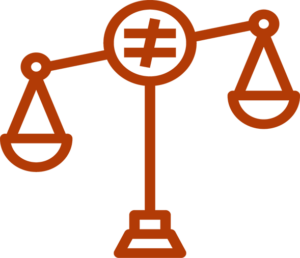
Pousette A, Hofmarcher T
Tackling inequalities in cancer care in the European Union
This report sheds light on inequalities in cancer care across the EU and provides recommendations for improvement. The report highlights inequalities between and within countries. Five case studies are analyzed relating to HPV vaccination, colorectal cancer screening, biomarker testing, cancer medicines and evidence-based care, access to financial products for survivors (‘the right to be forgotten’).
Across the EU, the chances of patients surviving cancer depends crucially on one’s place of residence. For instance, the five-year survival rate of colon cancer ranges from 50% in the worst-performing country to nearly 70% in the best-performing country. For breast cancer, survival rates range from just above 70% to around 90%. One underlying factor contributing to between-country inequalities in patient outcomes may be the level of per-capita spending on cancer care. Spending ranges from €50–100 per capita in Bulgaria, Croatia, Estonia, Latvia, Poland, and Romania to €250–300 in Austria, the Benelux countries, France, and Germany (adjusted for purchasing power parities). However, spending on cancer care only partially seems to explain between-country inequalities.
The report emphasizes the critical role of how funds are used to provide high-quality care in order to address inequalities in patient outcomes. For each case study, inequalities across six dimensions (countries, sex, age, education level, socioeconomic status, urbanization level) are studied. The findings reveal large between-country inequalities in the EU along the entire disease pathway, such as HPV vaccination rates of girls ranging from less than 10% in Bulgaria to over 90% in Portugal or colorectal cancer screening rates ranging from around 5% in Bulgaria, Cyprus, and Romania to 76% in Denmark. There are also notable within-country inequalities. Factors such as age, socioeconomic status, and rural/urban place of residence demonstrate high levels of inequalities. Individual aspects relating to health literacy also influence access to cancer care.
Common reasons for the observed inequalities between countries include the political prioritization of cancer care, health expenditure on cancer care (funding), availability of supporting infrastructure, availability of medical professionals, up-to-dateness of clinical guidelines. Reasons for inequalities within countries include the level of health literacy and the geographic distance to university hospitals and comprehensive cancer centers.
Top-level recommendations to national policymakers to enhance and ensure more equal access to cancer care for everyone are the following:
• Improve personal and organizational health literacy of cancer patients and the public
• Ensure education and continuous training of medical staff
• Adopt innovations in early detection, diagnosis, and treatment of cancer
• Take a societal perspective in national cancer control planning
• Collect relevant data and continuously evaluate the quality of cancer care services
Euractiv News – Interview with Thomas Hofmarcher, 2024-02-20
For more information, please contact Thomas Hofmarcher
IHE REPORT 2024:1, IHE: Lund, Sweden
